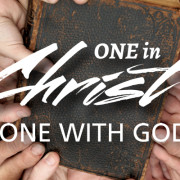Lent makes a heart light
The dark and solemn hours of Lent bring joy and comfort.
Eric S. Hartzell
You probably have never heard anyone say, “I just love this Lenten time of year because it makes me feel so lighthearted!” It doesn’t seem that Lent would make our hearts light. There are the somber evening services with heavy colors of purple and black. Death is spoken of freely and often, and human weakness and failure are presented in depressing detail. It all culminates on Good Friday with services that focus on the death of Jesus. You just don’t see that much that makes your heart light and happy.
Lent is about the heart. It’s about the cleansing of very dirty hearts with the solvent of the Savior’s blood. Lent tells of Peter’s broken heart when Jesus turned in the courtyard of the high priest and looked straight at Peter—right into that heart that wanted to do right but did what was wrong. It tells of the hard heart of Judas. “What are you willing to give me if I deliver him over to you?” (Matthew 26:15) is a question that can only come from a hard heart. It tells of the fearful heart of the young man in the gospel of Mark, which turned and twisted and left its identity as a believer in Jesus in the hands of the enemy as the young man ran away naked into the night. Our own hearts squirm uncomfortably when we think of the times we also ran scared from confessing, “Yes, I am one of them! I am Jesus’ disciple!”
Jesus says in every Lenten season, “Do not let your hearts be troubled.” He knows our hearts, and he talks to our hearts in Lent.
JESUS AND THE THIEF
It seems hard to see a light heart anywhere in the Lenten story until we watch the thief who was crucified with Jesus. We understand in the thief’s story that all of Lent is heading for a light heart.
Actually both the thief and Jesus had light hearts. For the joy set before him, Jesus endured the cross, scorning its shame! What a happy thing that was! Jesus wouldn’t die of a broken heart. His heart became silent, but it was never broken. Think what his heart could consider as he said, “Father, forgive them.” He was taking away the black murder of the murderer. He was plunging the adultery of the adulterer with all its shame and hurt into the depths of the sea. He was erasing every sniping sentence of the gossip and the sharp-tongued. He was transferring to his account all the transgressions of every trespasser. He looked at the one who had just hurled insults, and he still said, “I love you so! I want you with me forever in paradise.” He was finishing his work. He was saving us all and setting our hearts free by grace to run and frolic like spring calves free from their winter barns.
The thief died with a light heart. For sure, he did! He was getting what his deeds deserved, but the unimaginable also was happening: God loved him still and God loved him so! He could say the name of Jesus! It was his belated Palm Sunday exclamation, “Hosannah!” That word means, “Save me now . . . please!” That’s what Jesus was doing for the heavyhearted thief. The light heart stands close to the name of Jesus. He is “the One who saves!” That’s what the angel told Joseph and Mary to name him—Jesus! That was the name tacked over his head on the cross: “Jesus of Nazareth, The King of the Jews!” Pilate didn’t put the exclamation point there, but we do. Our light hearts can’t help themselves when they punctuate Jesus’ name and Pilate’s misspoken epitaph. He’s our King too!
The thief got it. His life was snatched from death. Angels were at that moment winging toward him in swift flight. His legs were broken, but the angels lent him their wings. “Jesus, remember me when you come into your kingdom!” And Jesus did!
LENT TODAY AND TOMORROW
Lent also is about our life today. Jesus said to the thief, “Today!” Lent speaks to our needs right now. We need forgiveness right now, and we get it when we hear Jesus say, “Father, forgive them.” We need Jesus’ care today when we think of our physical needs. We see Jesus providing for his mother there at his cross, and we know that this was our God giving her the daily bread of care for body and life. Bread tomorrow is unknown. Bread today is good in all that it promises us for our lives in this world.
Jesus takes care of our today in Lent. He also claims our future and calms our worries about it with his words, “You will be with me in paradise.” We will most certainly be saved. In a world that is broken we have something to look forward to. As we with all the believers and worshipers in Lent rub up against the broken and jagged edges of this life, we are promised that something good is coming. We live today looking forward in faith to tomorrow. During the year it is easy to lose this anticipation and this hope, but Lent reminds us and helps us. Our hearts are light because something good is coming. We all know it. We stand on tiptoes with creation and wait for it. In Lent we know that our Easter is coming. We can look at our baptism and realize that we too shall be raised to a new life! The anticipation is palpable and touchable.
It is very hard to be lighthearted when we think of death. Mary and Martha had trouble being lighthearted when their brother Lazarus died. Jesus did too. He wept. But Jesus speaks into the weeping Lent of Mary and Martha—and ours—“Even if you die, you will not die! Do you believe this?” (cf. John 11:25,26). It is in Lent that Jesus gives us the very words that will make our hearts light even in the dark and heavy company of death. He says to us when things grow dim and dark, “I tell you the truth, today you will be with me in paradise.”
This makes our hearts light because it is true. God tells us the truth. We get to Lent tired from the devil’s lies to us. All year he has said about his seductive sin, “This won’t hurt,” but it did hurt. He lied about our death-deserving deeds, “These won’t matter,” but they have mattered and they do matter. And the most devilish lie of all, “This will make you happy,” but it doesn’t and brings hours of bitter regret.
In the face of all the devil’s lies, Jesus tells us the truth: “Today, you will be with me in paradise.”
And that makes our hearts light.
Eric Hartzell is pastor at Cross and Crown, Georgetown, Texas.
SUBMIT YOUR STORY
Do you have a manuscript, idea, or story from your own life you’d like to share for use in Forward in Christ or on wels.net? Use our online form to share it to our editorial office for consideration.
SUBSCRIBE TO FORWARD IN CHRIST
Get inspirational stories, spiritual help, and synod news from Forward in Christ every month. Print and digital subscriptions are available from Northwestern Publishing House.
Author: Eric S. Hartzell
Volume 103, Number 3
Issue: March 2016
Copyrighted by WELS Forward in Christ © 2021
Forward in Christ grants permission for any original article (not a reprint) to be printed for use in a WELS church, school, or organization, provided that it is distributed free and indicate Forward in Christ as the source. Images may not be reproduced except in the context of its article. Contact us




